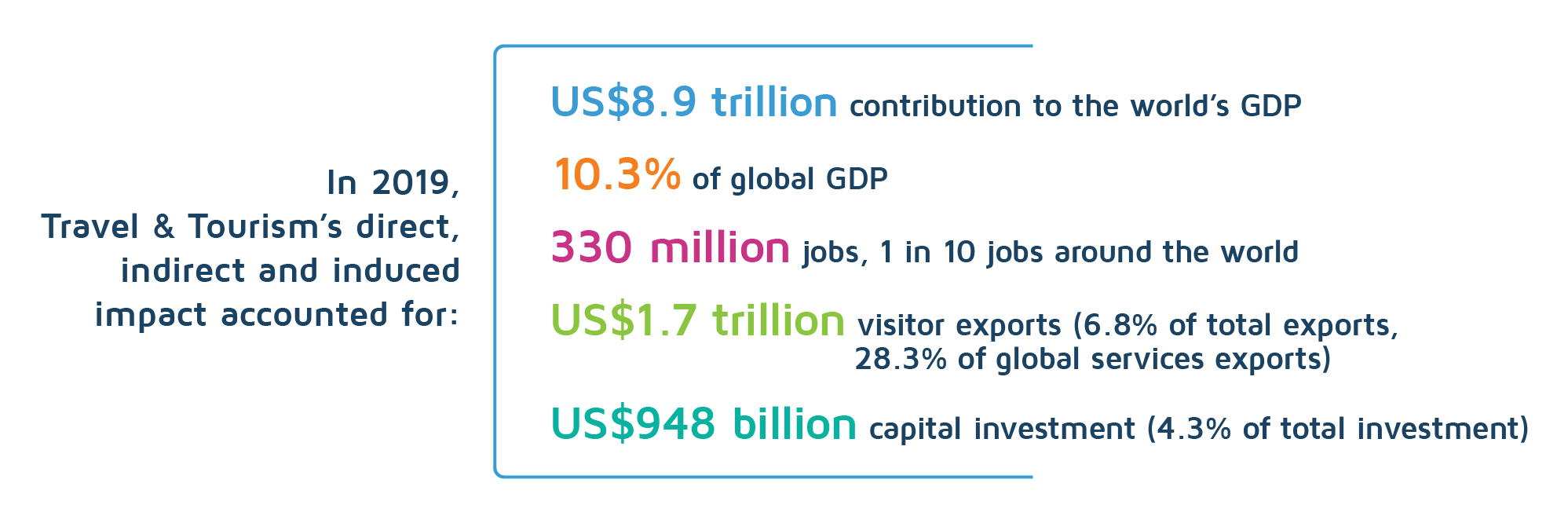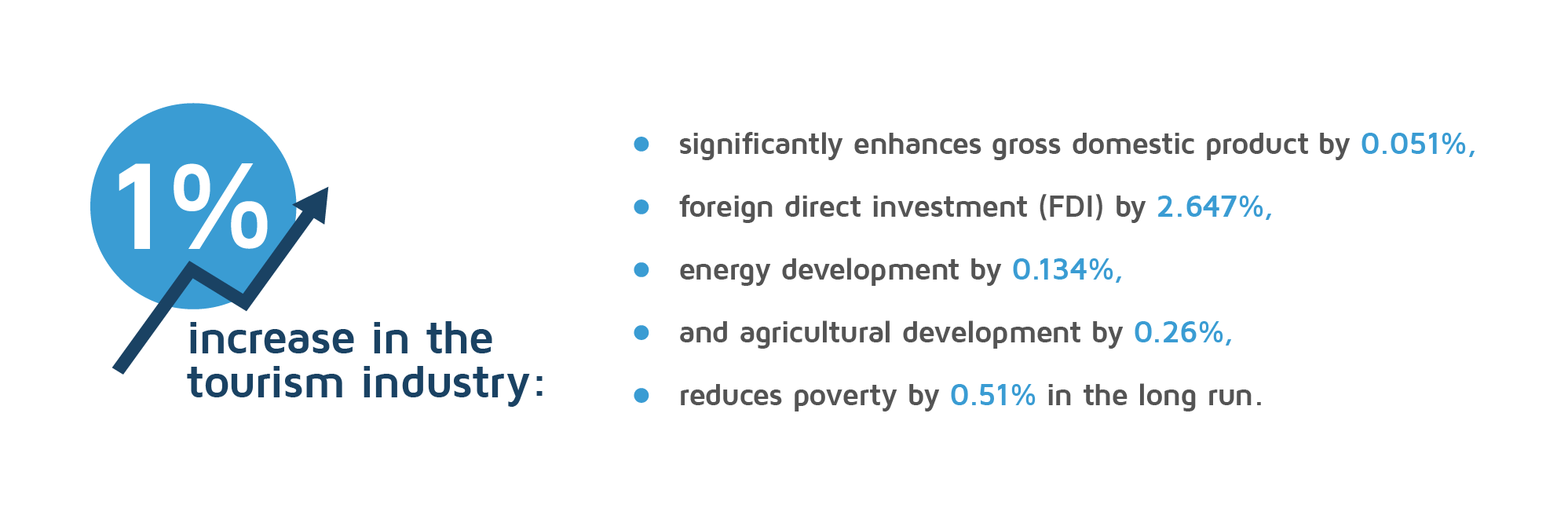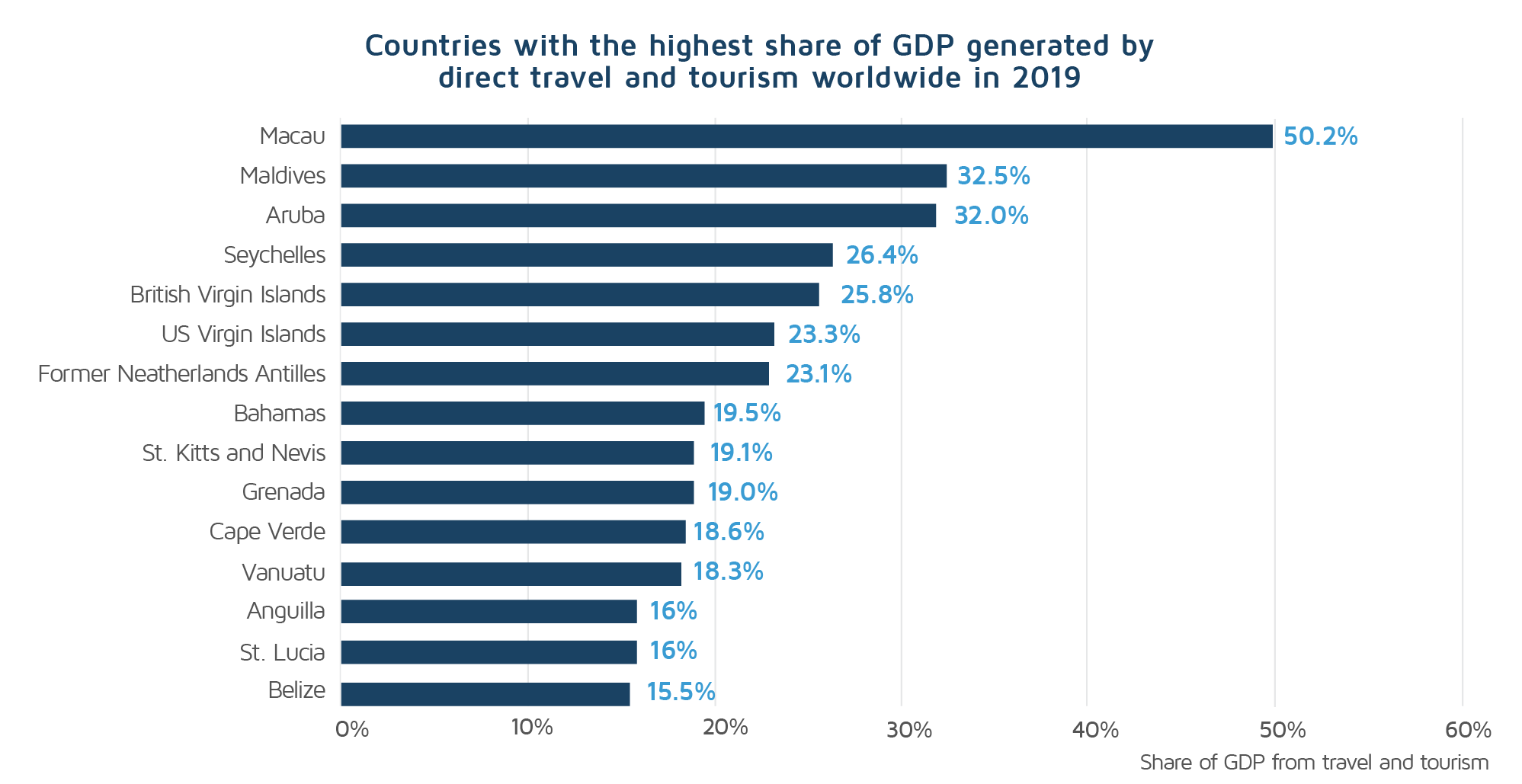“What would you like for breakfast?” Liuba Railean, the owner of a small tourist pension asked the family who had checked in the previous evening. At Villa Roz, situated in the Orheiul Vechi region of Moldova, Liuba usually served local cuisine for lunch and supper while breakfasts were more European style. Small tourist businesses run by women such as Liuba’s ten-bed Villa Roz are popular in Moldova, the second poorest country in Europe, mainly because they generate income but do not require a high investment or a large number of employees. But can small-scale tourist facilities serve as an engine for progress in poor and developing countries DevelopmentAid brings you a broader look at the relationship between tourism and development.
For many low- and middle-income countries, tourism is believed to offer a great opportunity for development. For women, rural communities, indigenous people and many other historically marginalized populations, tourism is “a vehicle for integration, empowerment and generating income” considers UN Secretary-General António Guterres.
Indeed, in 2019 alone travelers carried billions of dollars with them across the globe. The money spent by tourists generated a massive US$8.9 trillion contribution to the global Gross Domestic Product.
The United Nations World Tourism Organization (UNWTO), in turn, suggests that tourism has an incredible ability to rapidly transform into a much-needed source of income for both public and private stakeholders. The latest available data suggests that the sector represents 30% of the world’s exports of services (US$1.5 trillion) and up to 45% of the total export of services in developing countries. Moreover, 1 in every 10 jobs worldwide is connected to the tourism sector.

At the same time, tourism’s contribution to the economy is multi-layered and cross-sectoral.
A recently published article entitled Tourism and Development in Developing Economies: A Policy Implication Perspectives suggests that tourism has a direct impact on the Gross Domestic Product of a country, its level of Foreign Direct Investments (FDI), the energy sector, and agricultural development. The authors conclude that, in the long run, it is an effective tool with which fight poverty.

In terms of the impact on the economy of a developing nation, tourism is considered to have multiple effects on its various sectors. Tourist activity generates employment and income for both companies and individuals. It also engages multiple sectors such as manufacturing, transportation, accommodation, real estate and others. A growing tourism industry also has a positive impact on segments of the affiliated value chains such as suppliers of commodities, food and services.
“We can observe important changes in each locality where a small tourist pension is established. Local authorities become more active in terms of identifying the investment so much needed in the infrastructure sector and for environmental sustainability. From what we have learned in dialogue with people – their incomes are increasing” stated Alex Ivanov, Head of Tourism Promotion Department at the Moldovan Investment Agency in a discussion with DevelopmentAid.
It is true that – an increasing number of tourists stimulates new investments in accommodation facilities. Typically, international HoReCa (Hotels, Restaurants, and Cafes) chains invest in countries that are experiencing increasing tourist activity. This leads to better roads, improved sanitation and growing transport networks.

Sometimes, it is the state or the international donor community that invests in the basic infrastructure development needed to stimulate tourist activity.
The tourism industry is a great consumer of energy. At the same time, it is considered to play an important role in tackling energy-related challenges through high flexibility and using green energy solutions (such as solar panels, wind power etc). Thus, tourism activity stimulates the development of the energy sector and infrastructure, adapting and showcasing innovative energy solutions for tackling climate change issues.
Another important aspect of the impact of the tourist industry is its influence on agriculture. As showcased in the model developed by the authors of the Tourism and Development in Developing Economies: A Policy Implication Perspectives, traditional cuisine and increasing demand for food generated by the growing number of tourists stimulate the local agricultural sector.
While the authors of the article offer the example of Pakistan, farmers from Moldova confirm the trend too: “I used to sell milk and cheese on the local market in Chisinau (the capital of Moldova)” says Tudor, a young entrepreneur who runs a small sheepfold in the same Orhei region. However, things changed after several small pensions were renovated and began to host tourists in the village. “Now I don’t have enough milk for Chisinau, because the locals buy almost everything my company produces. The tourism business guarantees a stable demand for my products. I am happy. I plan to expand my business and invest in the procurement of an additional 50 sheep of a different breed which produces more milk”, concluded the young entrepreneur from Trebujeni village.
The example of Tudor, the young shepherd from Moldova who was able to expand his business thanks to growing tourist activity in the region, is not news to international researchers. Articles and studies have been published describing the ways in which tourism can stimulate development across the world’s poorest communities.
One of the conclusions shared is that small-scale tourist business models can be reproduced across developing countries: with or without mountains or white sand, such as landlocked post-Soviet Moldova. Local small agricultural producers become suppliers of fresh, mostly organic, homegrown food.
In some areas, tourists can visit the farms themselves and assist the farmers.
“At least six tourist pensions have been incorporated in Moldova in the last five years. Although the number may look small, it represents one-fifth of the total number of small tourist facilities in the countryside”, explains Alex Ivanov. The official insists that these enterprises are of great importance to local communities.
“Tourists have the opportunity to hike, bike, meet the locals and assist them in preparing traditional cuisine. They can also shop for hand-made artisan objects or get involved in agricultural work in the garden. Each of these activities turns into income for the local community.”
The hawk-eyes of the authorities
Alongside all the tremendous benefits and stimulus for social and economic development, tourism can also cause irreversible damage for local communities. Without proper management, with bad policies and insufficient monitoring activity, it can cause serious environment degradation.
Liuba Railean from Villa Roz says that the local authorities have recently destroyed several unauthorized landfills and implemented stricter monitoring of environmental compliance within agriculture. “We care about our environment and about our community. We always encourage tourists to be environmentally friendly. At the same time, we try to put pressure on authorities to keep the region clean. The progress is rather slow, but I am happy with what we have” she concluded.
Developed countries have mechanisms in place which guarantee that the protection and sustainability of the environment are maintained, while poorer nations are yet to discover and adopt those practices.
“One of the actions to reduce the negative impact of tourism on the environment is the promotion and development of sustainable tourism” says Alex Ivanov.
According to him, Moldovan authorities plan to raise awareness and promote the principles of the sustainable development of tourism in the private sector. One of the remarkable points of the National Tourism Development Program (Tourism – 2025) is the “stimulation of the feeling of pride with a distinctive country as a tourist destination”.
The promotion and monitoring of compliance with environmentally friendly practices are two of the multiple functions to be performed by authorities in the emerging economies.
Tourism is believed to have a positive impact on economic development, but strict policies and regulations need to be approved and executed.
International donors, such as USAID, the World Bank, IADB and UNDP assist governments in the Least Developed Countries by providing, among others things, consultancy support for improving tourism-related policies and frameworks, as well as grants for marketing activities and infrastructure development.
DevelopmentAid has gathered over 2000 funding opportunities in the tourism sector.

